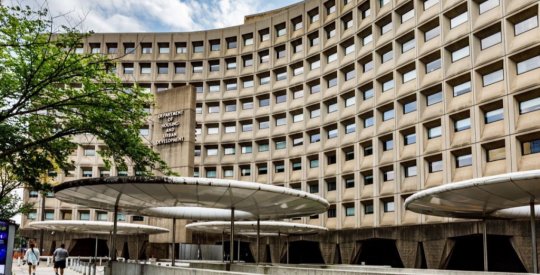Issues brought to light in a recent foreclosure case to go through the Massachusetts Supreme Court may put pressure on bank stocks, according to a recent report by FBR Capital Markets. Last week, the Massachusetts Supreme Court upheld a lower courts decision, in what is largely referred to as the Ibanez case, and voided two foreclosures on the basis that securitization trustess U.S. Bancorp (USB) and Wells Fargo (WFC) failed to prove they were the proper noteholders at the time they foreclosed. Following the ruling Friday, Wells Fargo’s stock dropped 4.6% and then closed out around $31.50. U.S. Bancorp’s stock dropped 0.9% before closing out at $26.04. By early afternoon Monday, Wells stood at $31.19 a share, down less than 1% and U.S. Bancorp stood at $26 a share, up $0.10 in today’s trading. FBR also said it expects losses of about $108 billion to the mortgage industry due to repurchase requests and warranties-related lawsuits, with $56 billion concentrated in the top 15 mortgage issuers. Bank of America (BAC) recently settled a $1.34 billion repurchase agreement with Fannie Mae and a $1.28 billion repurchase agreement with Freddie Mac. “We believe GSE losses are mostly contained, and many companies have told us that they are through over 50% of the losses,” the report said. FBR said private-label pushbacks, however, are usually less successful than agency pushbacks. Both the Massachusetts case and the pushback lawsuits have the potential to be a drag on bank stocks, FBR said, with plenty of negative headlines to come. “The court systems will have to determine if the industry has any real liabilities for the issued securities, and the decisions will likely take a few years at best to sort out,” the FBR report said. “Although it will be a bumpy ride through 2011 as these issues are worked out, we ultimately believe the banks have the capability to earn through whatever losses they may incur, given that the industry earns about $240 billion of pretax, pre-provision earnings on an annual basis,” the report said. See the chart below for a full estimate of representations and warranties losses by bank.  FBR said it mostly favors large banks with diversified revenue in fourth-quarter results along with a handful of regionals but remains cautious about “less-efficient” regional banks. Mortgage banking activity was approximately 12% weaker in the fourth quarter compared to 3Q, primarily due to a dramatic drop-off in late November and December as interest rates rose from record low levels. Higher interest rates, combined with continued economic weakness, will likely keep mortgage banking activity weak through 2011, FBR said. Write to Christine Ricciardi. Follow her on Twitter @HWnewbieCR.
FBR said it mostly favors large banks with diversified revenue in fourth-quarter results along with a handful of regionals but remains cautious about “less-efficient” regional banks. Mortgage banking activity was approximately 12% weaker in the fourth quarter compared to 3Q, primarily due to a dramatic drop-off in late November and December as interest rates rose from record low levels. Higher interest rates, combined with continued economic weakness, will likely keep mortgage banking activity weak through 2011, FBR said. Write to Christine Ricciardi. Follow her on Twitter @HWnewbieCR.
Ibanez ruling could pressure bank stocks: FBR
Most Popular Articles
Latest Articles
HUD walks back some proposed changes to HECM for Purchase program
Certain changes announced for the H4P program last year will not be implemented after public comments raised concerns, HUD and FHA said.
-
Key housing markets are starting to buck national trends: Redfin
-
Median payment on purchase mortgage applications rises to $2,201: MBA
-
HUD, USDA reach accord on energy-efficiency standard for new construction
-
U.S. mortgage delinquency rates remain near historic lows: CoreLogic
-
HomeServices settles commission lawsuits for $250M



